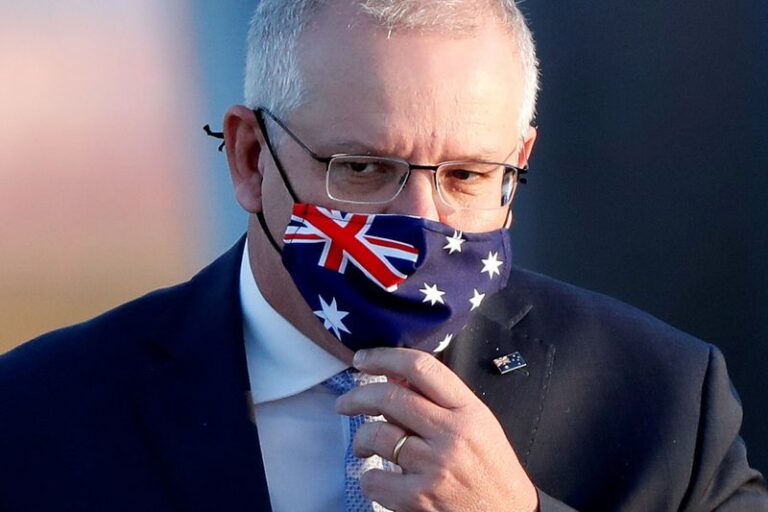
SYDNEY, (Reuters) – Australia’s national Cabinet is set to hold an unscheduled meeting on Wednesday as states press the federal government to further shorten the wait time for COVID-19 booster vaccines amid a record surge in cases fuelled by the Omicron variant.
Australia is grappling with the more transmissible Omicron variant of the coronavirus as restrictions ease after higher vaccination levels but authorities are urging people to focus on the hospitalisation numbers, which remains far lower than during the Delta wave.
State leaders have been pushing Prime Minister Scott Morrison to lower the wait time for booster shots to around four months from five to contain the spread of Omicron.
“That will be the decision made by the immunisation experts. That’s not a decision politicians make,” Morrison told Nine News on Wednesday. “What is necessary is we continue to ramp up the boosters that are being delivered.”
Morrison urged state leaders to reopen hundreds of vaccination hubs to accelerate the rollout of the booster shots after they were shut down as demand slowed when double-dose rates in people above 16 years topped 80%.
“That’s a very important part of today’s discussion,” Morrison said. The national Cabinet – the group of federal and state leaders – had been due to meet next in February but a snap meeting was called after the rapid spread of Omicron.
Despite the Omicron surge, Morrison on Tuesday ruled out lockdowns and insisted that limiting the spread of the virus comes down to personal responsibility.
Australia on Wednesday reported more than 5,000 daily infections for the first time during the pandemic, eclipsing the previous high of around 4,600 a day earlier. The bulk of cases was found in its most populous states of New South Wales and Victoria.
So far, nearly 265,000 COVID-19 cases and 2,162 deaths have been recorded in Australia since the pandemic began, far lower than the numbers seen in many comparable countries.






